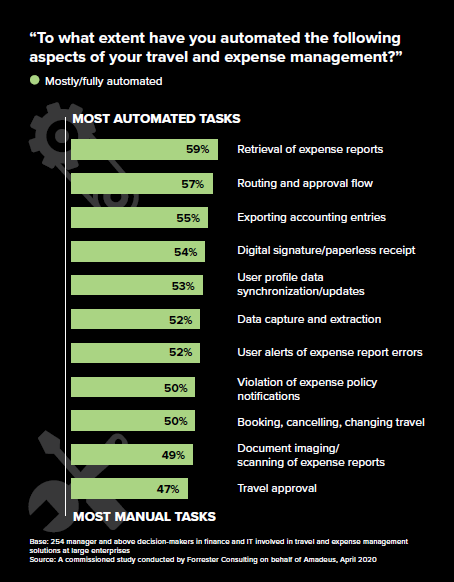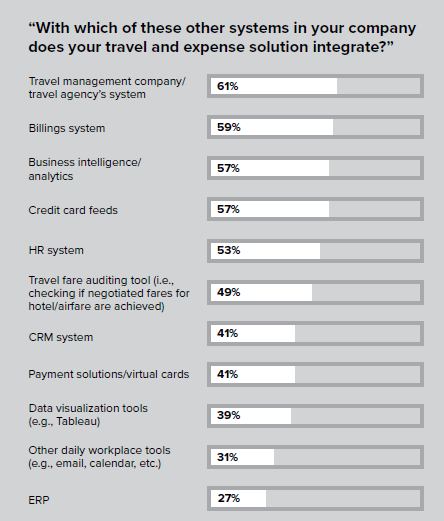The article - 'Travel expense management needs a rethink and modernisation to ensure compliance and generate business efficiencies' - highlighted that enterprises "must rethink" their travel and expense management technologies to digitally transform, improve employee experience, and enhance efficiency of financial operations through automation and integration.
The research showed that although there has been lots of talk and examples of automation this is not necessary the case with all business.
Amadeus commissioned Forrester Consulting last year to conduct a survey of finance, procurement, travel management, IT, and HR leaders at large enterprises to explore the current state and challenges with travel and expense management processes and tools. The study, 'Digital Transformation For Travel And Expense: Balancing Process Efficiencies, Compliance, And Employee Experience', was published in Sep-2020, based on qualitative interviews and a survey carried out amongst 556 respondents.
Within the report surveyed finance and IT managers said end-to-end travel and expense management processes at their firms burden employees, managers, and accounts payable teams with manual tasks that are repetitive and low value. Between a fifth (21%) and almost a third (30%) of respondents said various tasks of travel and expense management are still mostly or fully manual at their firm.
They also acknowledged that while tasks involved in expense report retrieval, routing and approval flow, and exporting accounting entries are those that are most likely to be automated, less than half of firms were found to have automated travel approval and document imaging/scanning of expense reports.

Even those that are further down the line with their automation, around four in ten respondents that had already introduced a cloud-based system, revealed that these remained partly or not at all integrated with one another. The research shows that 60% said their organisation has a single platform/solution for both travel and expense, while 32% said they have partly integrated between two different tools, and 8% said they have two different tools with no integration.
The research found that even among those with a single platform for travel and expense management, most indicated that these tools currently do not integrate well with other systems like ERP and daily work tools, like email and calendar. "The low level of integration of tools for travel, expenses, and other enterprise systems further increases the manual burden on employees," says Amadeus.

This is a top challenge for companies. "These issues contribute to a lengthy and inefficient end-to-end T&E experience," recognises Amadeus. Surveyed finance and travel management leaders indicated that the end-to-end process takes 13.6 hours per trip on average. The most time is spent on travel booking by employees, travel approval by managers, and expense processing by AP teams. The longest part of the process is expense processing and reimbursement.
